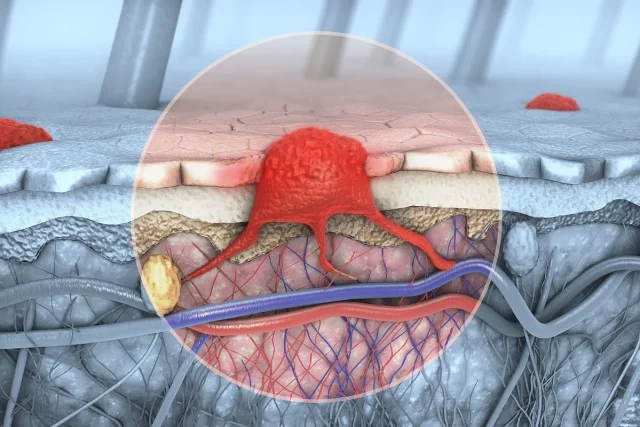Machine learning algorithm has superior reproducibility and prognostic associations compared with traditional pathologist-read methods
By Elana Gotkine HealthDay Reporter
TUESDAY, July 8, 2025 (HealthDay News) — For tumor-infiltrating lymphocyte (TIL) quantification in melanoma, an artificial intelligence (AI) algorithm demonstrates superior reproducibility and prognostic associations compared with traditional methods, according to a study published online July 3 in JAMA Network Open.
Thazin N. Aung, Ph.D., from the Yale University School of Medicine in New Haven, Connecticut, and colleagues examined the analytical and clinical validity of a machine learning algorithm for TIL quantification in melanoma compared to traditional pathologist-read methods. The study used retrospective cohorts of patients with melanoma across 45 institutions between January 2022 and June 2023.
A total of 111 patients with melanoma were included in the independent testing cohort and contributed melanoma whole-tissue sections. TILs on 60 hematoxylin and eosin-stained melanoma tissue sections were evaluated by 98 participants; all 40 in the manual arm were pathologists, while 11 pathologists and 47 nonpathologists were included in the AI-assisted arm. The researchers found that superior reproducibility was demonstrated by the AI algorithm, with intraclass correlation coefficients higher than 0.90 for all machine learning TIL variables, which significantly outperformed manual assessments. Prognostic associations with patient outcomes were seen for AI-based TIL scores, with a hazard ratio of 0.45 and 0.56 using the median cutoff approach and the cutoff of 16.6, respectively.
“While traditional pathologist-read TIL evaluations offer valuable insights, our findings indicated that an advanced AI tool enhanced reproducibility of TIL scoring and improved prognostic potential,” the authors write.
Several authors disclosed ties to the biopharmaceutical industry.
Copyright © 2025 HealthDay. All rights reserved.



















